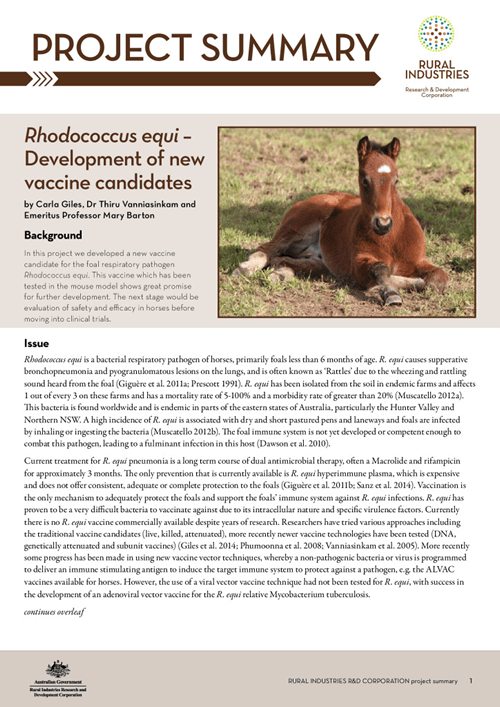Rhodococcus equi is a bacterial respiratory pathogen of horses, primarily foals less than 6 months of age. R. equi causes supperative bronchopneumonia and pyogranulomatous lesions on the lungs, and is often known as ‘Rattles’ due to the wheezing and rattling sound heard from the foal (Giguère et al. 2011a; Prescott 1991). R. equi has been isolated from the soil in endemic farms and affects 1 out of every 3 on these farms and has a mortality rate of 5-100% and a morbidity rate of greater than 20% (Muscatello 2012a).
This bacteria is found worldwide and is endemic in parts of the eastern states of Australia, particularly the Hunter Valley and Northern NSW. A high incidence of R. equi is associated with dry and short pastured pens and laneways and foals are infected by inhaling or ingesting the bacteria (Muscatello 2012b). The foal immune system is not yet developed or competent enough to combat this pathogen, leading to a fulminant infection in this host (Dawson et al. 2010).
In this project we developed a new vaccine candidate for the foal respiratory pathogen Rhodococcus equi. This vaccine which has been tested in the mouse model shows great promise for further development.





